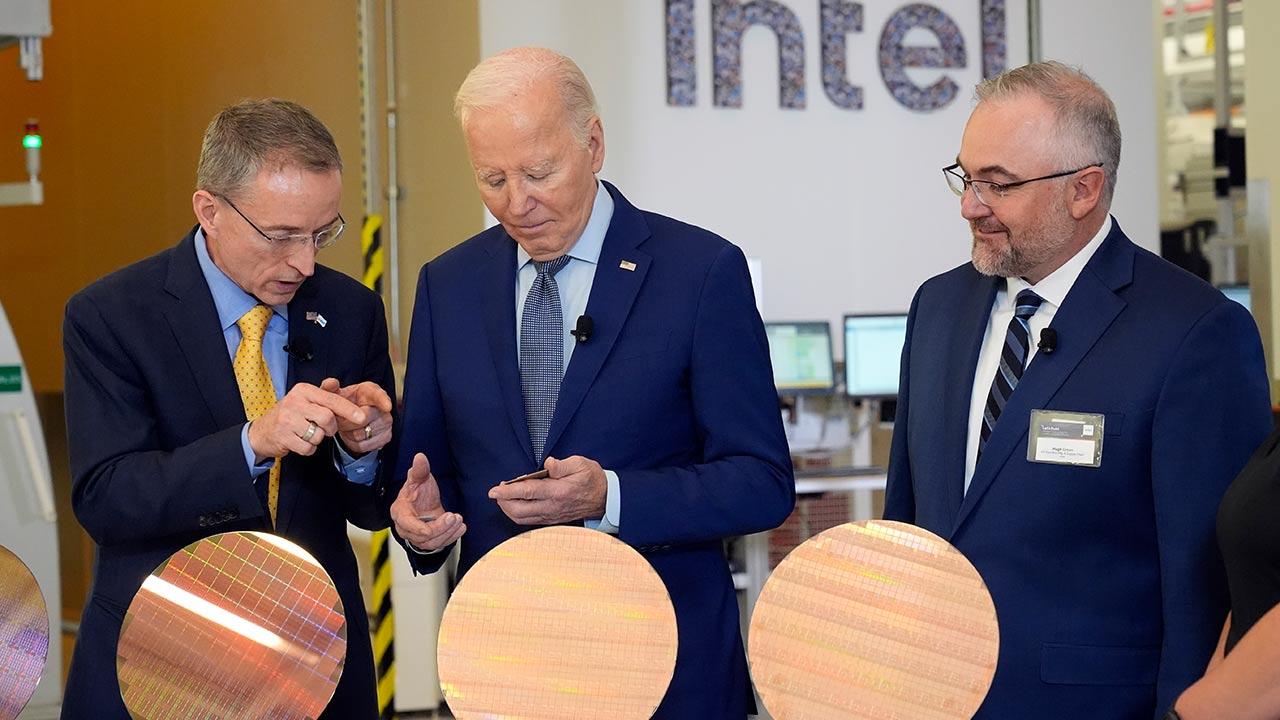Introduction
In a seismic upheaval within the tech landscape, Intel Corporation finds itself entrenched in a tumultuous battle, facing a staggering $7 billion losses and a class action lawsuit alleging securities fraud.
In recent developments, Levi & Korsinsky, a prominent class action attorney firm, has initiated a class action lawsuit against Intel Corporation. This lawsuit is drawing attention from investors who are being encouraged to join the legal battle against the semiconductor giant. The core of the lawsuit revolves around allegations that Intel failed to accurately disclose substantial losses incurred by its manufacturing division during its 2023 financial reports.
As the semiconductor giant grapples with this crisis, the outcome of the lawsuit will be closely scrutinized by investors, analysts, and stakeholders, potentially reshaping the trajectory of one of the industry’s key players.
Follow us on Linkedin for everything around Semiconductors & AI
Background: The ‘Internal Foundry’ Model
Starting in Q1 2024, Intel implemented a significant structural change known as the ‘internal foundry’ model. Under this new framework, Intel’s product divisions, as well as external clients, were to procure manufacturing and packaging services from Intel Foundry, a newly formed, independent division within Intel. Prior to this shift, Intel did not report the financial results of its manufacturing division separately. Instead, it only disclosed the performance of its Intel Foundry Services (IFS) unit, which catered to external customers.
Intel $7 Billion Losses: The Bombshell Disclosure
On April 2, 2024, Intel provided comprehensive details about its new segment reporting strategy. This disclosure necessitated a retrospective recasting of Intel Foundry’s results as a distinct entity for several previous years. The findings were staggering: in 2023, the newly established division had suffered a loss of approximately $7 billion. This revelation triggered a sharp decline in Intel’s stock value.

Image Credits: Google Finance
Additionally, it was disclosed that Intel outsources nearly 30% of its production to Taiwan Semiconductor Manufacturing Company (TSMC) and other contract chipmakers. This outsourcing detail further rattled investors, causing additional volatility in Intel’s stock price.
Financial Performance in Q1 2024
When Intel announced the Q1 2024 results on April 25, 2024, the figures for the manufacturing arm were dismal. Intel Foundry reported a loss of $2.5 billion against a revenue of $4.4 billion in Q1 2024 alone. This financial strain, coupled with the earlier disclosures, resulted in Intel losing approximately one-third of its market capitalization since the beginning of the year.
Allegations in the Class Action Suit
The class action complaint, spearheaded by Levi & Korsinsky, alleges that Intel made a series of false statements and concealed critical information regarding its Foundry Services’ financial health. The specific allegations include:
- Misleading Revenue Growth Indications: The growth of Intel Foundry Services was not reflective of the revenue growth under the new internal segment reporting.
- Significant Operating Losses: Intel’s Foundry experienced substantial operating losses in 2023, which were not properly disclosed.
- Decline in Product Profit: The Foundry’s product profit saw a decline driven by reduced internal revenue.
- Ineffective Foundry Model: The new Foundry model would not bolster Intel’s IFS strategy as claimed.
- Misleading Positive Statements: As a result of the above issues, the defendants’ positive statements about Intel’s business, operations, and prospects were materially misleading and lacked a reasonable basis.
Intel $7 Billion Losses: Financial Disclosures and Investor Reactions
On April 2, 2024, Intel unveiled its plans for segment reporting, leading to a recasting of Intel Foundry’s results as a separate entity for previous years.
This retrospective analysis revealed a staggering $7 billion loss for the division in 2023. The revelation sent shockwaves through the investor community, triggering a sharp decline in Intel’s stock price.
The situation was further exacerbated by the disclosure that Intel outsources approximately 30% of its production to Taiwan Semiconductor Manufacturing Company (TSMC) and other contract chipmakers.
The financial report for Q1 2024, released on April 25, 2024, only added fuel to the fire. It revealed that Intel Foundry lost $2.5 billion on revenues of $4.4 billion during the quarter.
As a result, Intel’s market capitalization suffered a significant blow, with roughly one-third of its value eroded since the beginning of the year.
Read More: Nvidia to Challenge Intel with Arm-Based PC Chips – techovedas
Intel $7 Billion Losses: Significance and Implications
The class action lawsuit against Intel is significant on multiple fronts.
Firstly, it underscores the critical importance of transparency and accurate financial reporting in maintaining investor trust. Misleading statements or omissions can severely harm a company’s reputation and shareholder value.
This was evident from the fallout following Intel’s disclosures. The lawsuit underscores the challenges of major strategic shifts in large corporations.
Intel’s adoption of the internal foundry model is a prime example.
Broader Industry Impact
The repercussions of Intel $7 billion loss and the ensuing lawsuit extend beyond the company itself.
The semiconductor industry is dealing with supply chain disruptions and geopolitical tensions.
Heightened scrutiny on corporate governance and financial transparency is underway.
Investors and stakeholders are closely watching the Intel case. It could establish a precedent for future regulatory and legal actions.
Read More:ASICs vs. FPGAs: Choosing the Right Technology for Your Design – techovedas
Rebuilding Trust and Moving Forward
As Intel navigates this crisis, rebuilding trust with shareholders and the broader market will be paramount.
The company must prioritize transparency, accountability, and effective communication in its interactions with investors and regulatory authorities.
Additionally, Intel’s leadership must reassess its strategic decisions and ensure that future initiatives are grounded in realistic projections and transparent reporting practices.
Follow us on Twitter: https://x.com/TechoVedas
Conclusion
Intel faces its darkest hour, dealing with a shocking $7 billion loss and a class action lawsuit alleging securities fraud.
This serves as a stark reminder of the consequences of inaccurate financial information. Heightened transparency and accountability are imperative in corporate operations.
The semiconductor industry’s evolution prompts close scrutiny of the lawsuit’s outcome. Investors, analysts, and stakeholders eagerly await Intel’s response to rebuild trust.








